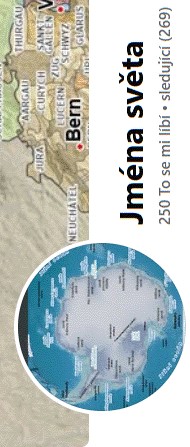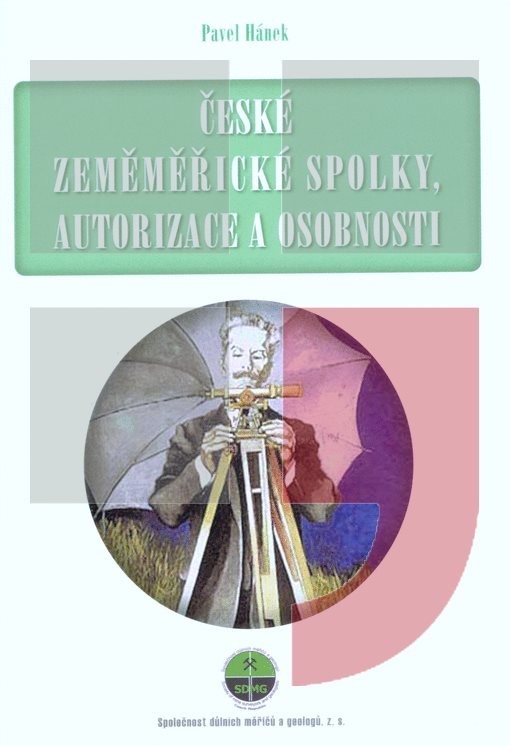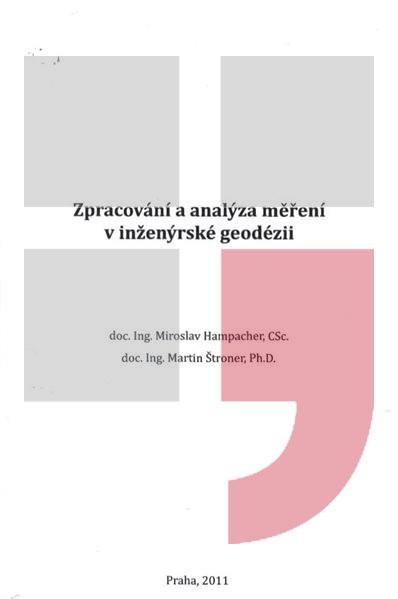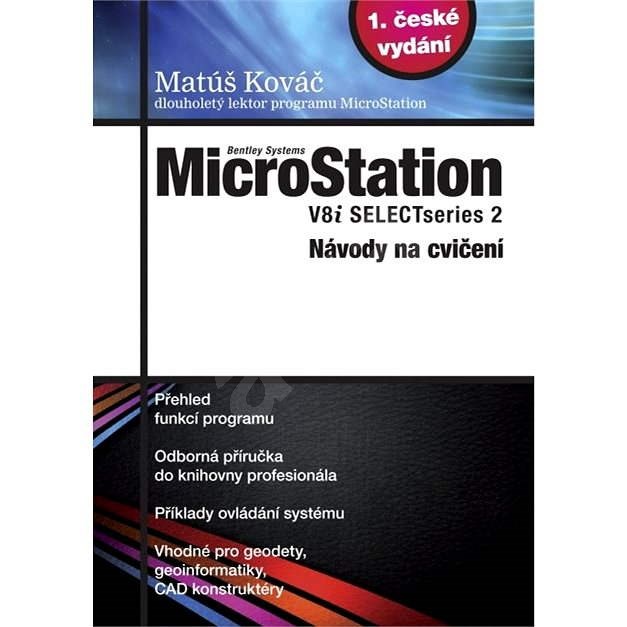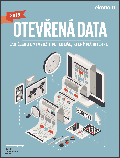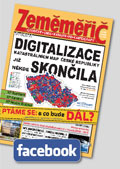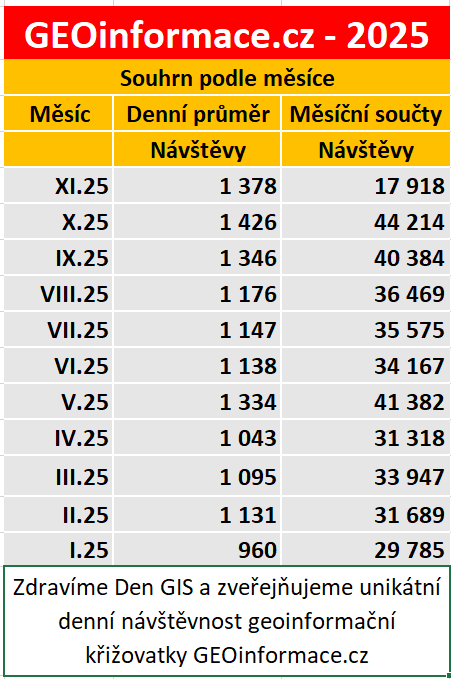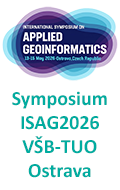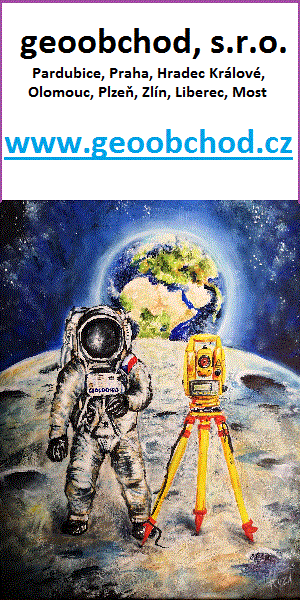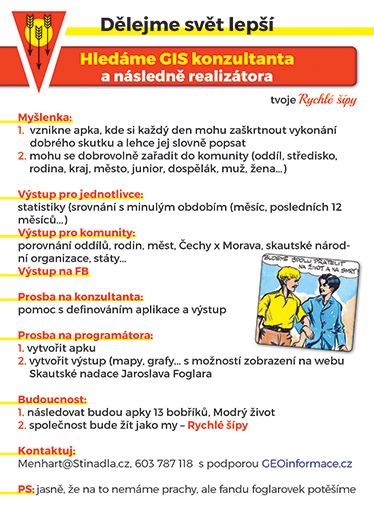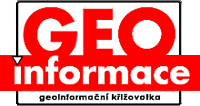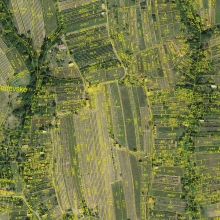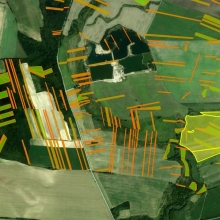zprávy
zdroje zpráv:Test VÚV WFS
27.1.2020 1:00 Cenia - Katalog metadat ČR - INSPIRE vrstva obsahuje vymezení chráněných území s vazbou na vodu a je formálně upravena pro potřeby reportingu podle směrnice 2000/60/ES (WFD). Obsažena jsou chráněná území, která nebyla reportována na základě jiné legislativy, tedy Ramsarské mokřady a maloplošná zvláště chráněná území. Prostorová i popisná složka dat byla upravena podle směrných dokumentů a požadavků Evropské komise na reporting Plánů oblastí povodí v roce 2016.Lego model ISS (Mezinárodní vesmírné stanice)
26.1.2020 1:30 GeoBusinessFirma Lego vydává v edici Lego Ideas novou sadu, která obsahuje kompletní Mezinárodní vesmírnou stanici včetně takových detailů jako je Space Shuttle. Mezinárodní vesmírná stanice, známější pod zkratkou ISS, je osídlena od listopadu 2000, kdy na stanici vstoupila první stálá posádka. Lego model ISS, který má 864 dílků a cena je 70 dolarů, bude na […]
The post Lego model ISS (Mezinárodní vesmírné stanice) appeared first on GeoBusiness.
Lego model Mezinárodní vesmírné stanice
26.1.2020 1:30 GeoBusinessFirma Lego vydává v edici Lego Ideas novou sadu, která obsahuje kompletní Mezinárodní vesmírnou stanici včetně takových detailů jako je Space Shuttle. Mezinárodní vesmírná stanice, známější pod zkratkou ISS, je osídlena od listopadu 2000, kdy na stanici vstoupila první stálá posádka. Lego model ISS, který má 864 dílků a cena je 70 dolarů, bude na […]
The post Lego model Mezinárodní vesmírné stanice appeared first on GeoBusiness.
Lego model Mezinárodní vesmírné stanice
26.1.2020 1:30 GeoBusiness Firma Lego vydává v edici Lego Ideas novou sadu, která obsahuje kompletní Mezinárodní vesmírnou stanici včetně takových detailů jako je Space Shuttle. Mezinárodní vesmírná stanice, známější pod zkratkou ISS, je osídlena od listopadu 2000, kdy na stanici vstoupila první stálá posádka. Lego model ISS, který má 864 dílků a cena je 70 dolarů, bude na […]VZ: Nadlimitní komplexní pozemkové úpravy v Hřensku
26.1.2020 0:55 ZeměměřičStátní pozemkový úřad vypsal nadlimitní veřejnou zakázku na komplexní pozemkové úpravy v katastrálních územích Janov u Hřenska a Oldřichov nad Ploučnicí. Zadavatel v souladu s ustanovením § 101 zákona, dělí veřejnou zakázku na dvě (2) části, které svým předmětem vymezuje takto: Část 1 – KoPÚ v k.ú. Janov u Hřenska Předmětem plnění veřejné zakázky je zpracování návrhu komplexní pozemkové úpravy (dále jen […]
The post VZ: Nadlimitní komplexní pozemkové úpravy v Hřensku appeared first on Zeměměřič.
Esri Partners with OSI to Provide Advanced GIS Capabilities and Real-Time Monitoring to Utilities
24.1.2020 18:07 GISCafe.com Webcasts-Webinars Customers Will Have Joint Access to the monarch™ Platform and the ArcGIS Utility Network Management ExtensionREDLANDS, Calif. — (BUSINESS …
A Day in the Life of Flirtey: The Future of Delivery (VIDEO)
24.1.2020 18:07 GISCafe.com Webcasts-Webinars RENO, Nev., Jan. 24, 2020 — (PRNewswire) — Flirtey, the industry-leading drone delivery service, released today a rare, inside …Contract secures build of ozone-monitoring Altius satellite
24.1.2020 16:20 ESA Observing the Earth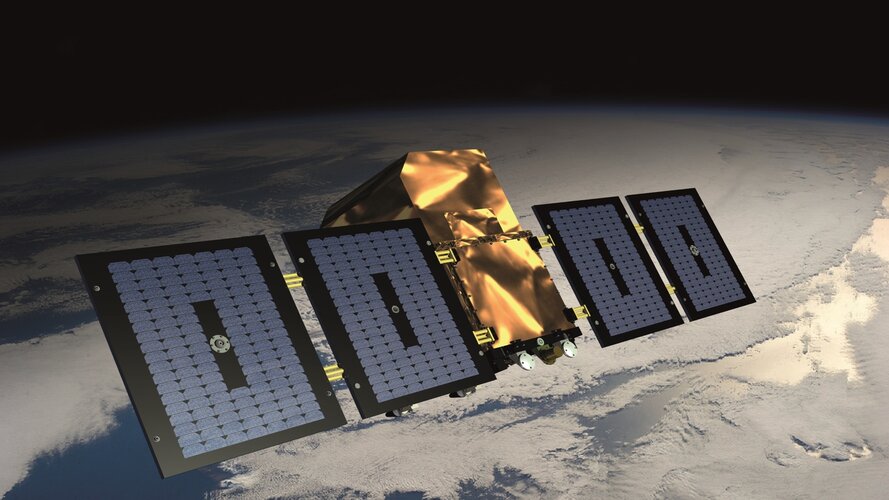
ESA has awarded a contract to QinetiQ to build Altius. This new mission will deliver profiles of concentrations of stratospheric ozone with high vertical resolution, as well as profiles of other atmospheric trace gases.
Aktualizace dat v mapových aplikacích
24.1.2020 14:05 Jihočeský kraj Data katastru nemovitostí (DKM, KMD, KM-D a ÚKM) byla v mapových aplikacích i výdejním modulu aktualizována k 1. 1. 2020.Informace o výsledcích kontrol dle § 26 zákona č. 255/2012 Sb. za rok 2019
24.1.2020 13:35 ČÚZK - předpisy a opatření Zeměměřický a katastrální inspektorát v Českých Budějovicíchvydává informace o výsledcích kontrol dle § 26 zákona č. 255/2012 Sb. za rok
2019
Jakub Karas se stal tento týden novým prezidentem Aliance pro bezpilotní letecký průmysl
24.1.2020 11:53 UpVisionJakub Karas se stal tento týden novým prezidentem Aliance pro bezpilotní letecký průmysl. Novým prezidentem Aliance pro bezpilotní letecký průmysl se stal Ing. Jakub Karas (UpVision) a novými členy představenstva Ing. Robert Šinkner (TKP geo) a Ing. Vladímír Hůda (EasyMap), kteří byli zvoleni na valné hromadě UAVA tento týden v Plzni. Chystáme v tomto důležitém roce z hlediska […]
The post Jakub Karas se stal tento týden novým prezidentem Aliance pro bezpilotní letecký průmysl appeared first on Upvision.
AGILE PHD SCHOOL aneb jak jsme domluvili Erasmus v Estonsku
24.1.2020 11:18 Katedra geoinformatiky UP OlomoucCo jsou letní školy jistě všichni znáte. I my doktorandi ve složení Kuba Koníček, Markéta Beitlová a Radek Barvíř jsme se na jednu takovou nedávno vypravili. A když už na letní školu, tak poslední listopadový víkend a do mrazivého Estonska ❄️😁 Čekal nás týden v univerzitním městě Tartu zaměřený na časoprostorovou geovizualizaci a rozvoj našich […]
The post AGILE PHD SCHOOL aneb jak jsme domluvili Erasmus v Estonsku appeared first on Katedra geoinformatiky.
AGILE PHD SCHOOLaneb jak jsme domluvili Erasmus v Estonsku
24.1.2020 11:18 Katedra geoinformatiky UP OlomoucCo jsou letní školy jistě všichni znáte. I my doktorandi ve složení Kuba Koníček, Markéta Beitlová a Radek Barvíř jsme se na jednu takovou nedávno vypravili. A když už na letní školu, tak poslední listopadový víkend a do mrazivého Estonska ❄️😁 Čekal nás týden v univerzitním městě Tartu zaměřený na časoprostorovou geovizualizaci a rozvoj našich […]
The post AGILE PHD SCHOOLaneb jak jsme domluvili Erasmus v Estonsku appeared first on Katedra geoinformatiky.
Informace o výsledcích kontrol dle § 26 zákona č. 255/2012 Sb. za rok 2019
24.1.2020 10:43 ČÚZK - předpisy a opatření Český úřad zeměměřický a katastrálníInformace o výsledcích kontrol dle § 26 zákona č. 255/2012 Sb. za rok 2019
2019
GISCafe Industry Predictions 2020 – Part 4 by Susan Smith
24.1.2020 10:15 GISCafe.com Webcasts-WebinarsURISA Announces the Release of the 2nd Edition of The GIS Management Handbook
24.1.2020 10:10 GISCafe.com Webcasts-Webinars Des Plaines, IL (January 23, 2020) -- URISA is pleased to announce the release of the second edition of The GIS Management Handbook. This is a …Earth from Space: Deforestation in Bolivia
24.1.2020 10:00 ESA Observing the Earth Video:
00:03:15
Video:
00:03:15
This week's edition of the Earth from Space programme features a Copernicus Sentinel-2 image over an area in the Santa Cruz Department of Bolivia, where part of the tropical dry forest has been cleared for agricultural use.
See also Deforestation in Bolivia to download the image.
Earth from Space: Deforestation in Bolivia
24.1.2020 10:00 ESA Observing the Earth Video:
00:03:15
Video:
00:03:15
This week's edition of the Earth from Space programme features a Copernicus Sentinel-2 image over an area in the Santa Cruz Department of Bolivia, where part of the tropical dry forest has been cleared for agricultural use.
See also Deforestation in Bolivia to download the image.
This week's edition of the Earth from Space programme features a Copernicus Sentinel-2 image over an area in the Santa Cruz Department of Bolivia, where part of the tropical dry forest has been cleared for agricultural use.
See also Deforestation in Bolivia to download the image.
Earth from Space: Deforestation in Bolivia
24.1.2020 10:00 ESA Observing the Earth Video:
00:03:15
Video:
00:03:15
This week's edition of the Earth from Space programme features a Copernicus Sentinel-2 mage over an area in the Santa Cruz Department of Bolivia, where part of the tropical dry forest has been cleared for agricultural use.
See also Deforestation in Bolivia to download the image.
Deforestation in Bolivia
24.1.2020 10:00 ESA Observing the Earth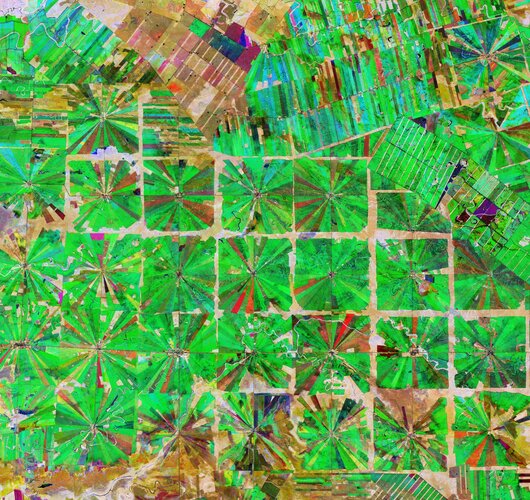 Image:
Image:
This Copernicus Sentinel-2 image features an area in the Santa Cruz Department of Bolivia, where part of the tropical dry forest has been cleared for agricultural use.
Since the 1980s, the area has been rapidly deforested owing to a large agricultural development effort where people from the Andean high plains (the Altiplano region) have been relocated to the lowlands of Bolivia.
The relatively flat lowlands and abundant rainfall make this region suitable for farming. In fact, the local climate allows farmers to benefit from two growing seasons. The region has been transformed from dense forest into a patterned expanse of agricultural land. This deforestation method, common in this part of Bolivia, is characterised by the radial patterns that can be seen clearly in the image.
Each patterned field is approximately 20 sq km and each side is around 2.5 km long.
Small settlements can be seen in the centre of each individual field in the image, which typically contain a church, a school and a soccer field. These communities are joined by a road network depicted by the straight lines that bisect the radial fields and connect the adjacent areas.
Meandering streams and rivers can be seen flowing through the fields. The long, thin strips of land in the top right of the image are most likely cultivated soybean fields.
Rainforests worldwide are being destroyed at an alarming rate. This is of great concern as they play an important role in global climate, and are home to a wide variety of plants and animals.
Because of their unique perspective from space, Earth observation satellites are instrumental in providing comprehensive information on the full extent and rate of deforestation, which is particularly useful for monitoring remote areas.
This composite image was created by combing three separate ‘Normalised Difference Vegetation Index’ images from the Copernicus Sentinel-2 mission. The first image, from 8 April 2019, is visible in red; the second from 22 June 2019, can be seen in green; and the third from 5 September 2019 can be seen in blue. The Normalised Difference Vegetation Index is widely used in remote sensing as it gives scientists an accurate measure of healthy and status of plant growth.
This image is also featured on the Earth from Space video programme.
Zveřejnění obsahu informací poskytnutých na žádost dle zákona č. 106/1999 Sb. za rok 2020
24.1.2020 9:00 ČÚZK - předpisy a opatření Katastrální úřad pro Jihomoravský krajzveřejňuje obsah informace poskytnutých na žádost dle zákona č. 106/1999 Sb. za rok
2020
Zveřejnění obsahu informací poskytnutých na žádost dle zákona č. 106/1999 Sb. za rok 2020
24.1.2020 9:00 ČÚZK /Urady/Katastralni-urady/Katastralni-urady/Katastralni-urad-pro-Jihomoravsky-kraj/Casto-hledane-informace/Poskytovani-informaci-106-1999-Sb/Zverejneni-obsahu-informaci-poskytnutych-na-za-(1)/Zverejneni-obsahu-informaci-poskytnutych-na-za-(2)Aktualizace datového skladu ÚAP
24.1.2020 7:20 Ústecký krajUpozorňujeme uživatele Geoportálu územně analytických podkladů, že v týdnu od 27.1.2020 do 7.2.2020 bude probíhat úprava funkčních komponent geoportálu v souvislosti s přechodem na novou verzi datového modelu. V tomto termínu nebude funkční výdej dat.
Aktualizace datového skladu ÚAP
24.1.2020 7:20 Ústecký krajUpozorňujeme uživatele Geoportálu územně analytických podkladů, že v týdnu od 27.1.2020 do 31.1.2020 bude probíhat úprava funkčních komponent geoportálu v souvislosti s přechodem na novou verzi datového modelu. V tomto termínu nebude funkční výdej dat.
James Norrod Named CEO Of PrecisionHawk
24.1.2020 2:00 GISCafe.com Webcasts-Webinars Seasoned Technology Executive with Extensive Experience in Strategic Partnerships to Lead Top Commercial Drone Company Through Next Phase of …Hexagon Announces Changes to Management Team
24.1.2020 2:00 GISCafe.com Webcasts-Webinars NACKA STRAND, Sweden, Jan. 23, 2020 — (PRNewswire) — Hexagon AB, a global leader in sensor, software and autonomous solutions, today …Alaska Signs Participating Addendum with DroneUp Providing Public Sector Agencies Access to Drone Services
23.1.2020 14:49 GISCafe.com Webcasts-Webinars VIRGINIA BEACH, Va., Jan. 14, 2020 — (PRNewswire) — DroneUp, LLC and the State of Alaska have signed a Participating Addendum for the …New Light Technologies Announces the Automated Infrastructure Compliance Framework (AICF)
23.1.2020 14:49 GISCafe.com Webcasts-Webinars WASHINGTON, Jan. 14, 2020 — (PRNewswire) — New Light Technologies Inc. (NLT) is proud to release the Automated Infrastructure …Galileo now replying to SOS messages worldwide
23.1.2020 14:22 ESA NavigationAs well as providing global navigation services, Europe’s Galileo satellite constellation is contributing to saving more than 2000 lives annually by relaying SOS messages to first responders. And from now on the satellites will reply to these messages, assuring people in danger that help is on the way.
Galileo now replying to SOS messages worldwide
23.1.2020 14:22 ESA Navigation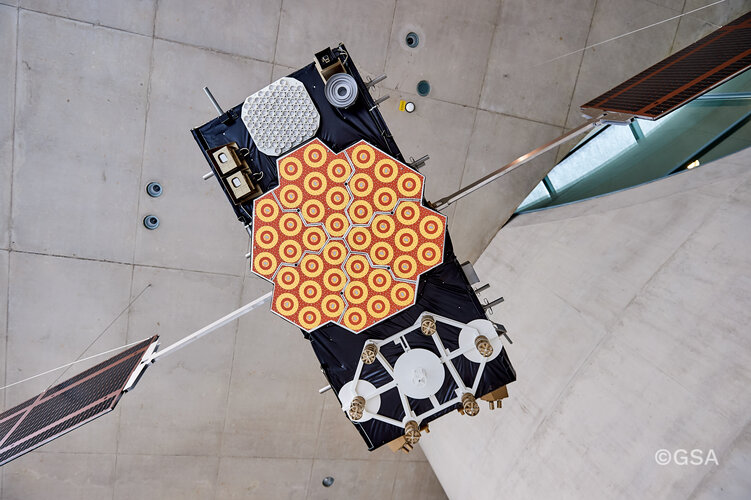
As well as providing global navigation services, Europe’s Galileo satellite constellation is contributing to saving more than 2000 lives annually by relaying SOS messages to first responders. And from now on the satellites will reply to these messages, assuring people in danger that help is on the way.
Galileo now replying to SOS messages worldwide
23.1.2020 14:22 ESA Navigation
As well as providing global navigation services, Europe’s Galileo satellite constellation is acontributing to saving more than 2000 lives annually by relaying SOS messages to first responders. And from now on the satellites will reply to these messages, assuring people in danger that help is on the way.
Taal volcano blanketed by ash
23.1.2020 13:45 ESA Observing the Earth Image:
Image:
The Philippines’ Taal volcano erupted on 12 January 2020 – spewing an ash plume approximately 15 km high and forcing large-scale evacuations in the nearby area.
This almost cloud-free image was captured today 23 January at 02:20 UTC (10:20 local time) by the Copernicus Sentinel-2 mission, and shows the island, in the centre of the image, completely covered in a thick layer of ash.
This optical image has also been processed using the mission’s short-wave infrared band to show the ongoing activity in the crater, visible in bright red. Ash blown by strong winds can be seen in Agoncillo, visible southwest of the Taal volcano. Ash has also recorded in other areas of the Batangas province, as well as Manila and Quezon.
According to The Philippine Institute of Volcanology and Seismology bulletin published today, sulphur dioxide emissions were measured at an average of around 140 tonnes. The Taal volcano still remains on alert level four, meaning an explosive eruption is possible in the coming hours or days. The highest alert level is five which indicates an eruption is taking place.
According to the National Disaster Risk Reduction and Management Council, over 50 000 people have been affected so far. In response to the eruption, the Copernicus Emergency Mapping Service was activated. The service uses satellite observations to help civil protection authorities and, in cases of disaster, the international humanitarian community, respond to emergencies.
Taal volcano blanketed by ash
23.1.2020 13:45 ESA Observing the Earth Image:
Image:
The Philippines’ Taal volcano erupted on 12 January 2020 – spewing an ash plume approximately 15 km high and forcing large-scale evacuations in the nearby area.
This almost cloud-free image was captured today 23 January at 02:20 GMT (10:20 local time) by the Copernicus Sentinel-2 mission, and shows the island, in the centre of the image, completely covered in a thick layer of ash.
This optical image has also been processed using the mission’s short-wave infrared band to show the ongoing activity in the crater, visible in bright red. Ash blown by strong winds can be seen in Agoncillo, visible southwest of the Taal volcano. Ash has also been recorded in other areas of the Batangas province, as well as Manila and Quezon.
According to The Philippine Institute of Volcanology and Seismology bulletin published today, sulphur dioxide emissions were measured at an average of around 140 tonnes. The Taal volcano still remains on alert level four, meaning an explosive eruption is possible in the coming hours or days. The highest alert level is five which indicates an eruption is taking place.
According to the National Disaster Risk Reduction and Management Council, over 50 000 people have been affected so far. In response to the eruption, the Copernicus Emergency Mapping Service was activated. The service uses satellite observations to help civil protection authorities and, in cases of disaster, the international humanitarian community, respond to emergencies.
Publikována nová sestavení pro
23.1.2020 13:31 GEUSware Publikována nová sestavení programů:GEUS 24.0.2.255 - podrobný seznam změn zde. Stáhnout nové sestavení
GEOMETR 18.0.11 - podrobný seznam změn zde. Stáhnout nové sestavení
Zakladatel firmy končí po 30 letech svou aktivní práci
23.1.2020 13:29 Hrdlička Kdo jiný, než já by se měl zhostit této role a poděkovat tátovi za všechno, co jsme spolu v profesním životě prožili.HRDLIČKA spol. s r.o. - Zakladatel firmy končí po 30 letech svou aktivní práci
23.1.2020 13:29 Hrdlička Kdo jiný, než já by se měl zhostit této role a poděkovat tátovi za všechno, co jsme spolu v profesním životě prožili.3D a BIM – základ moderní výstavby
23.1.2020 13:28 Hrdlička Věnujeme se zpracováním dokumentace stávajících stavebních objektů na základě..HRDLIČKA spol. s r.o. - 3D a BIM – základ moderní výstavby
23.1.2020 13:28 Hrdlička Věnujeme se zpracováním dokumentace stávajících stavebních objektů na základě..5. porada vedení firem holdingu HRDLIČKA Group
23.1.2020 13:27 Hrdlička V říjnu se konala 5. porada vedení firem holdingu HRDLIČKA Group, kterou hostila..HRDLIČKA spol. s r.o. - 5. porada vedení firem holdingu HRDLIČKA Group
23.1.2020 13:27 Hrdlička V říjnu se konala 5. porada vedení firem holdingu HRDLIČKA Group, kterou hostila..CoreLogic Acquires Location, Inc.
23.1.2020 12:26 GISCafe.com Webcasts-Webinars Acquisition expands insurance risk analytics and real estate insights for CoreLogic customers for non-weather water and fire, hail and crime risk …Geospatial World Forum 2020 to highlight the value of geospatial technology in digital economy in the 5G Era
23.1.2020 12:14 GISCafe.com Webcasts-Webinars Focus on 5G, AI, Autonomous Vehicles, Big Data, Cloud, IoT and LiDAR in various user industries, including digital cities, construction & …20200123 Odborný referent oddělení právních vztahů k nemovitostem
23.1.2020 11:09 ČÚZK - předpisy a opatření Katastrální úřad pro Středočeský kraj - Katastrální pracoviště Mělník Vyhlášení výběrového řízení: Odborný referent oddělení právních vztahů k nemovitostem V části "Úřední deska", v sekci "Oznámení a jiná úřední sdělení" bylo vystaveno "Oznámení o vyhlášení výběrového řízení na obsazení služebního místa Odborný referent oddělení právních vztahů k nemovitostem"20200113 Rada / odborný rada oddělení právních vztahů k nemovitostem
23.1.2020 11:09 ČÚZK /Urady/Katastralni-urady/Katastralni-urady/Katastralni-urad-pro-Stredocesky-kraj/Katastralni-pracoviste/KP-Melnik/O-uradu/Aktuality/20190828-Odborny-rada-oddeleni-pravnich-vztahu-(1)20200123 Odborný referent oddělení právních vztahů k nemovitostem
23.1.2020 11:09 ČÚZK /Urady/Katastralni-urady/Katastralni-urady/Katastralni-urad-pro-Stredocesky-kraj/Katastralni-pracoviste/KP-Melnik/O-uradu/Aktuality/20190828-Odborny-rada-oddeleni-pravnich-vztahu-(1)ICC 2021 posunuta na prosinec
23.1.2020 7:00 Česká asociace pro geoinformace 29. Mezinárodní Kartografická Konference 2021 (ICC 2021) ve Florencii byla posunuta z původního červencového termínu na 13. - 17. prosince 2021 !CoreLogic Raises Fourth Quarter and Full-Year 2019 Financial Guidance
23.1.2020 0:40 GISCafe.com Webcasts-Webinars Strong Operating Performance Highlighted by Revenue Growth and Favorable Mix, Significant Margin Expansion and Capital ReturnIRVINE, Calif. — …
Sedaru, Inc. is selected for Nevada Irrigation District Enterprise Asset Management
23.1.2020 0:40 GISCafe.com Webcasts-Webinars Northern California water utility serving 27,000 homes and businesses signs multi-year contract.SAN DIMAS, Calif., Jan. 22, 2020 — …
EcoPoint Flowline Mapping Service Offers Operator Compliance, Geospatial Database
22.1.2020 19:47 GISCafe.com Webcasts-Webinars DENVER, Jan. 16, 2020 — (PRNewswire) — Operators of underground oil and gas flowlines in Colorado can comply with newly revised state …Foxfury Reveals the D3060 -- A Small Format Drone & Utility Light
22.1.2020 19:17 GISCafe.com Webcasts-Webinars D3060 light meets global regulations for UAV night flight and anti-collision lightingOCEANSIDE, Calif., Jan. 16, 2020 — (PRNewswire) — …
Descartes Labs Launches First Cloud-Based Geospatial Data Refinery and Modeling Platform
22.1.2020 18:04 GISCafe.com Webcasts-Webinars SANTA FE, N.M., Jan. 22, 2020 (GLOBE NEWSWIRE) -- Descartes Labs, a New Mexico-based geospatial analytics company, today announced the availability …Inpixon's Indoor Mapping Platform Selected for Patient Wayfinding
22.1.2020 18:04 GISCafe.com Webcasts-Webinars PALO ALTO, Calif. and TORONTO, Jan. 22, 2020 — (PRNewswire) — Inpixon (Nasdaq: INPX), a leading indoor data company that …Flowfinity Launches Geographic Information System (GIS) Mapping Capabilities to Aid Field Data Collection
22.1.2020 18:04 GISCafe.com Webcasts-Webinars VANCOUVER, British Columbia, Jan. 22, 2020 — (PRNewswire) — Flowfinity Wireless Inc. today released a software update that allows …Draganfly Releases New Payloads to Increase Efficiency and Data Collection Quality
22.1.2020 18:04 GISCafe.com Webcasts-Webinars Vancouver, British Columbia , Jan. 22, 2020 (GLOBE NEWSWIRE) -- Draganfly Inc. (CSE: DFLY) (OTCQB: DFLYF) (FSE: 3U8) (“Draganfly” or the …UTGIS Technology Protects Dogs and Humans from Winter Sidewalk Electrical Hazards
22.1.2020 18:04 GISCafe.com Webcasts-Webinars PORT ST. LUCIE, Fla., Jan. 22, 2020 — (PRNewswire) — Four separate dog injuries in Chicago over the past ten days reminds us that …Watch live: Copernicus4regions debate
22.1.2020 16:35 ESA Observing the Earth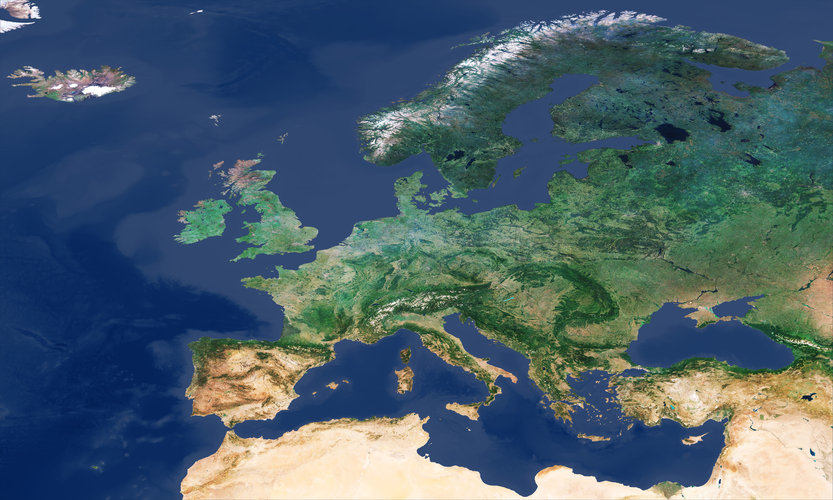
Copernicus4regions: live debate from the European Parliament
On 23 January at 08:30 CET hear how Copernicus is used for public policies
Den otevřených dveří 2020 [Knihovna geografie, byTopic]
22.1.2020 16:10 Katedra aplikované geoinformatiky a kartografie Přf UK V pátek a sobotu 24. a 25. ledna 2020 proběhne na naší fakultě Den otevřených dveří. Srdečně jsou zváni nejen všichni zájemci o studium přírodních a společenských věd z řad středoškoláků posledních, ale i nižších ročníků, nebo absolventů bakalářského studia.Want to know more about EGNSS for geomatics?
22.1.2020 15:07 European GNSS Agency
Many promising geomatics applications benefit from the European navigation programmes Galileo and EGNOS. Land, marine and mine surveying, infrastructure monitoring and mapping and GIS applications that require high precision GNSS are all enabled by both the EU satellite navigation systems. The European GNSS Agency (GSA), together with Geospatial Media, invites you to participate in a free webinar - EGNSS for Geomatics – where you can learn about everything that EGNSS has to offer for geomatics.
GNSS is one of the key Geomatics technologies along with GIS, Earth Observation and Remote Sensing, to help with the geospatial data acquisition. Geomatics disciplines include the geo-data collection means and techniques used in land surveying (including cadastral, construction, mapping and GIS, mining or infrastructure monitoring), photogrammetry, remote sensing, marine surveying and other emerging tools such as drones or mobile mapping, for which high-precision GNSS is either paramount, or a key enabler. EGNOS and Galileo are the two EU satellite navigation systems that provide high-quality positioning, navigation and timing services to users across the whole world.
In the webinar EGNSS for Geomatics experts in navigation and geomatics will guide you through the Galileo and EGNOS programmes, the use, the benefits, the added value for the geomatics user community, and the applications already available as well as the innovation potential.
Save the date in your calendar: Thursday, 23 January at 14:00 CET.
Don´t miss out - REGISTER NOW!
Media note: This feature can be republished without charge provided the European GNSS Agency (GSA) is acknowledged as the source at the top or the bottom of the story. You must request permission before you use any of the photographs on the site. If you republish, we would be grateful if you could link back to the GSA website (http://www.gsa.europa.eu).
Want to know more about EGNSS for geomatics?
22.1.2020 15:07 European GNSS Agency
Many promising geomatics applications benefit from the European navigation programmes Galileo and EGNOS. Land, marine and mine surveying, infrastructure monitoring and mapping and GIS applications that require high precision GNSS are all enabled by both the EU satellite navigation systems. The European GNSS Agency (GSA), together with Geospatial Media, invites you to participate in a free webinar - EGNSS for Geomatics – where you can learn about everything that EGNSS has to offer for geomatics.
GNSS is one of the key Geomatics technologies along with GIS, Earth Observation and Remote Sensing, to help with the geospatial data acquisition. Geomatics disciplines include the geo-data collection means and techniques used in land surveying (including cadastral, construction, mapping and GIS, mining or infrastructure monitoring), photogrammetry, remote sensing, marine surveying and other emerging tools such as drones or mobile mapping, for which high-precision GNSS is either paramount, or a key enabler. EGNOS and Galileo are the two EU satellite navigation systems that provide high-quality positioning, navigation and timing services to users across the whole world.
In the webinar EGNSS for Geomatics experts in navigation and geomatics will guide you through the Galileo and EGNOS programmes, the use, the benefits, the added value for the geomatics user community, and the applications already available as well as the innovation potential.
Save the date in your calendar: Thursday, 23 January at 14:00 CET.
Don´t miss out - REGISTER NOW!
Media note: This feature can be republished without charge provided the European GNSS Agency (GSA) is acknowledged as the source at the top or the bottom of the story. You must request permission before you use any of the photographs on the site. If you republish, we would be grateful if you could link back to the GSA website (http://www.gsa.europa.eu).
Informace o výsledcích kontrol dle § 26 zákona č. 255/2012 Sb. za rok 2019
22.1.2020 14:28 ČÚZK - předpisy a opatření Zeměměřický a katastrální inspektorát v Opavěvydává informace o výsledcích kontrol dle § 26 zákona č. 255/2012 Sb. za rok
2019
20200122 - Výběrové řízení KP Břeclav
22.1.2020 14:24 ČÚZK - předpisy a opatření Český úřad zeměměřický a katastrální zveřejnil novou aktualitu: Oznámení o vyhlášení výběrového řízení na obsazení služebního místa ředitele katastrálního pracoviště Břeclav.20200122 - Výběrové řízení KP Břeclav
22.1.2020 14:24 ČÚZK /Aktuality-resort/2020/20200122-Vyberove-rizeni-KP-BreclavRozpočet úřadu za rok 2020
22.1.2020 12:18 ČÚZK /Urady/Katastralni-urady/Katastralni-urady/Katastralni-urad-pro-Jihomoravsky-kraj/Rozpocet/Rozpocet-uradu-za-rok-2020Rozpočet úřadu za rok 2020
22.1.2020 12:18 ČÚZK - předpisy a opatření Katastrální úřad pro Jihomoravský krajvystavuje rozpočet úřadu za rok
2020
Rada / odborný rada - ředitel Katastrálního pracoviště Břeclav
22.1.2020 12:17 ČÚZK - volná místa Katastrální úřad pro Jihomoravský kraj vypisuje výběrové řízení na místo Rada / odborný rada - ředitel Katastrálního pracoviště BřeclavRada / odborný rada - ředitel Katastrálního pracoviště Břeclav
22.1.2020 12:17 ČÚZK /Urady/Katastralni-urady/Katastralni-urady/Katastralni-urad-pro-Jihomoravsky-kraj/Uredni-deska/Oznameni-a-jina-uredni-sdeleni/Volna-mista/DMS/Rada-odborny-rada-reditel-Katastralniho-pracovRada / odborný rada - ředitel Katastrálního pracoviště Břeclav
22.1.2020 12:17 ČÚZK - předpisy a opatření Katastrální úřad pro Jihomoravský krajvypisuje výběrové řízení na místo
Rada / odborný rada - ředitel Katastrálního pracoviště Břeclav
Rada / odborný rada - ředitel Katastrálního pracoviště Břeclav
22.1.2020 12:17 ČÚZK - volná místa Katastrální úřad pro Jihomoravský kraj Katastrální pracoviště Břeclav vypisuje výběrové řízení na místo Rada / odborný rada - ředitel Katastrálního pracoviště BřeclavRada / odborný rada - ředitel Katastrálního pracoviště Břeclav
22.1.2020 12:17 ČÚZK - předpisy a opatření Katastrální úřad pro Jihomoravský kraj Katastrální pracoviště Břeclavvypisuje výběrové řízení na místo
Rada / odborný rada - ředitel Katastrálního pracoviště Břeclav
odborný referent/vrchní referent – vedení katastrální mapy, potvrzování geometrických plánů
22.1.2020 11:58 ČÚZK /Urady/Katastralni-urady/Katastralni-urady/Katastralni-urad-pro-hlavni-mesto-Prahu/Uredni-deska/Oznameni-a-jina-uredni-sdeleni/Volna-mista/DMS/odborny-referent-vrchni-referent-–-vedeni-katastraodborný referent/vrchní referent – vedení katastrální mapy, potvrzování geometrických plánů
22.1.2020 11:58 ČÚZK - předpisy a opatření Katastrální úřad pro hlavní město Prahu Katastrální pracoviště Prahavypisuje výběrové řízení na místo
odborný referent/vrchní referent – vedení katastrální mapy, potvrzování geometrických plánů
odborný referent/vrchní referent – vedení katastrální mapy, potvrzování geometrických plánů
22.1.2020 11:58 ČÚZK - volná místa Katastrální úřad pro hlavní město Prahu Katastrální pracoviště Praha vypisuje výběrové řízení na místo odborný referent/vrchní referent – vedení katastrální mapy, potvrzování geometrických plánůOGC seeks public comment on Core Tiling Conceptual and Logical Models Abstract Specification Topic
22.1.2020 10:10 GISCafe.com Webcasts-Webinars Candidate Abstract Specification Topic defines a conceptual model for tiling space of any number of dimensions, as well as a logical model for tiling …Epazz, Inc. Holdings: ZenaPay Inc. Receives Preorders of ZenaDrone with the Now Corporation for its ZenaDrone Smart Farming Solution
22.1.2020 9:37 GISCafe.com Webcasts-Webinars CHICAGO, Jan. 21, 2020 (GLOBE NEWSWIRE) -- via NEWMEDIAWIRE -- Epazz Inc. (OTC: EPAZ), a leading provider of drone technology, blockchain …Construction Starts Fall 21% in December
22.1.2020 9:37 GISCafe.com Webcasts-Webinars Construction starts end 2019 essentially even with the previous yearHAMILTON, N.J. — (BUSINESS WIRE) — January 21, 2020 …
Vexcel Imaging to Acquire Image Survey Expertise and Data Assets from Verisk to Support New Strategic Partnership
22.1.2020 9:37 GISCafe.com Webcasts-Webinars JERSEY CITY, N.J., and BOULDER, Colo., Jan. 21, 2020 (GLOBE NEWSWIRE) -- Vexcel Imaging, a leader in aerial imagery data, large-format aerial …Atlantic enhances its airborne capability with Teledyne Optech’s new Galaxy T2000 and G2 sensor system
22.1.2020 9:35 GISCafe.com Webcasts-Webinars Vaughan, Ontario, January 21, 2020 — Teledyne Optech, a Teledyne Technologies [NYSE:TDY] company and global leader in lidar sensing, is pleased …Výběrové řízení na stipendijní pobyty v Polsku
22.1.2020 0:00 Geografický ústav MUBylo vypsáno výběrového řízení na stipendijní pobyty pro studenty a akademické pracovníky v Polsku.
Termín odevzdání přihlášek je 22. ledna 2020.
Detailní informace - https://www.dzs.cz/file/8183/POLSKO%20VR_AIA_20-21.pdf
Carlson Introduces Vsx7 GNSS Receiver for Machine Control
21.1.2020 23:22 Carlson Software MAYSVILLE, Kentucky, U.S.A. (January 2020) — Carlson Machine Control has introduced the Vsx7 multi-frequency position and heading receiver. The Vsx7 is a multiGNSS receiver designed specifically for machine control and can be installed on excavators, drills, pile drivers, and more. Paired with the Carlson A45 antennas, the Vsx7 features high-precision positioning in Athena RTK, Atlas […]Kdo vyhraje ocenění Mapa roku 2019? Můžete to být i vy.
21.1.2020 20:25 GeoBusinessČeská kartografická společnost zve k účasti v 22. ročníku odborné kartografické soutěže Mapa roku. Zakladatel soutěže prof. Vít Voženílek říká, že k vytvoření soutěže Mapa roku jej tehdy inspirovaly soutěže jako Známka roku, Kniha roku, Sportovec roku či Atlet roku. Nešlo přitom ani tak o nějaké velké mediální zviditelnění se, protože je to odborná soutěž. […]
The post Kdo vyhraje ocenění Mapa roku 2019? Můžete to být i vy. appeared first on GeoBusiness.
Kdo vyhraje ocenění Mapa roku 2019? Můžete to být i vy.
21.1.2020 20:25 GeoBusiness Česká kartografická společnost zve k účasti v 22. ročníku odborné kartografické soutěže Mapa roku. Zakladatel soutěže prof. Vít Voženílek říká, že k vytvoření soutěže Mapa roku jej tehdy inspirovaly soutěže jako Známka roku, Kniha roku, Sportovec roku či Atlet roku. Nešlo přitom ani tak o nějaké velké mediální zviditelnění se, protože je to odborná soutěž. […]$32+ Billion Unmanned Aerial Vehicle (UAV) Market Outlook, 2026 - Emerging Product Trends & Market Opportunities
21.1.2020 18:01 GISCafe.com Webcasts-Webinars Dublin, Jan. 21, 2020 (GLOBE NEWSWIRE) -- The "Global Unmanned Aerial Vehicle (UAV) Market 2020-2026 by Offering, Frame, MTOW, Technology, Range, …Digital Map Market Major Growth factors by: ESRI, Google, Tomtom, Mapbox, Digitalglobe, Digital Map Products - Dagoretti News (Google Maps)
21.1.2020 18:01 GISCafe.com Webcasts-WebinarsAirWorks Provides DJI Enterprise Drone Solutions
21.1.2020 18:00 GISCafe.com Webcasts-Webinars DUBAI, United Arab Emirates, Jan. 21, 2020 — (PRNewswire) — With its DJI Enterprise solutions, AirWorks is proving to be a …Genasys™ Inc. Schedules Fiscal First Quarter 2020 Financial Results Conference Call for Monday, February 10, 2020, 4:30 p.m. ET
21.1.2020 17:59 GISCafe.com Webcasts-Webinars SAN DIEGO, Jan. 21, 2020 (GLOBE NEWSWIRE) -- Genasys Inc (NASDAQ: GNSS), a critical communications company, today announced plans to release …Drone Delivery Data: 36% of Online Shoppers Are More Likely to Purchase an Item Delivered by Drone
21.1.2020 17:58 GISCafe.com Webcasts-Webinars More than one-third of online shoppers say they are more likely to purchase an item if they know it will be delivered by drone, according to a new …Global Unmanned Aerial Vehicle (UAV) Market Report 2020-2026
21.1.2020 17:58 GISCafe.com Webcasts-Webinars DUBLIN, Jan. 21, 2020 — (PRNewswire) — The "Global Unmanned Aerial Vehicle (UAV) Market 2020-2026 by Offering, Frame, MTOW, Technology, …3v Geomatics Joins NVIDIA Inception Program
21.1.2020 17:57 GISCafe.com Webcasts-Webinars VANCOUVER, British Columbia, Jan. 21, 2020 (GLOBE NEWSWIRE) -- 3v Geomatics, Inc. (3vG) is pleased to announce that it has joined the NVIDIA …Global Geophysical Services (Seismic, Magnetic, Gravity, LIDAR, Others) Market Outlook, 2019-2024
21.1.2020 17:57 GISCafe.com Webcasts-Webinars Dublin, Jan. 21, 2020 (GLOBE NEWSWIRE) -- The "Global Geophysical Services Market, By Technology (Seismic, Magnetic, Gravity, LIDAR & Others), By …Čo bolo, to bolo alebo návrat do reality.
21.1.2020 17:28 Komora pozemkových úprav SRAké sú dôsledky neschválenia novely zákona o pozemkových úpravách?
Čo bolo, to bolo alebo návrat do reality.
21.1.2020 17:28 Komora pozemkových úprav SROdmietnutím novely zákona o PÚ zostáva v platnosti prednostné právo na uzavretie nájomných zmlúv v pôvodnej podobe
Čo bolo, to bolo alebo návrat do reality.
21.1.2020 17:28 Komora pozemkových úprav SRAké sú dôsledky neschválenia novely zákona o pozemkových úpravách?
Oznámení o konání revize katastru nemovitostí
21.1.2020 15:35 ČÚZK - předpisy a opatření Katastrální úřad pro Ústecký kraj - Katastrální pracoviště Děčín zveřejnil novou aktualitu: Vážení klienti,oznamujeme Vám, že od března 2021 budou probíhat v katastrálních územích Benešov nad Ploučnicí, Dolní Habartice, Horní Habartice, Malá Veleň, Malý Šachov a Starý Šachov revize katastru nemovitostí.
Účelem provádění revize je soulad údajů katastru nemovitostí se skutečným stavem v terénu, kdy jsou zjišťovány změny a ověřován dosavadní stav předmětu evidence katastru nemovitostí.
Oznámení o konání revize katastru nemovitostí
21.1.2020 15:35 ČÚZK - předpisy a opatření Katastrální úřad pro Ústecký kraj - Katastrální pracoviště Děčín zveřejnil novou aktualitu: Vážení klienti,oznamujeme Vám, že od března 2020 budou probíhat v katastrálních územích Babětín, Přední Lhota u Těchlovic, Přerov u Těchlovic a Těchlovice obce Těchlovice revize katastru nemovitostí.
Účelem provádění revize je soulad údajů katastru nemovitostí se skutečným stavem v terénu, kdy jsou zjišťovány změny a ověřován dosavadní stav předmětu evidence katastru nemovitostí.
Oznámení o konání revize katastru nemovitostí
21.1.2020 15:35 ČÚZK /Urady/Katastralni-urady/Katastralni-urady/Katastralni-urad-pro-Ustecky-kraj/Katastralni-pracoviste/KP-Decin/O-uradu/Aktuality/Oznameni-o-konani-revize-katastru-nemovitostiZ důvodu změn na serverech ČÚZ
21.1.2020 14:45 GEUSware Z důvodu změn na serverech ČÚZK přestalo fungovat Nahlížení do KN z programu GEUS a Geometr. Usilovně pracujeme na opravě a vydání nových sestavení programů GEUS 24.0 a Geometr 18.0. Podívejte se na změny, které schválila vláda v novele zákona o pozemkových úpravách
21.1.2020 14:00 ZeměměřičVláda ČR schválila na své schůzi 13. ledna 2020 novelu zákona o pozemkových úpravách, přesněji návrh zákona, kterým se mění zákon č. 139/2002 Sb., o pozemkových úpravách a pozemkových úřadech a o změně zákona č. 229/1991 Sb., o úpravě vlastnických vztahů k půdě a jinému zemědělskému majetku, ve znění pozdějších předpisů, ve znění pozdějších předpisů, a zákon č. 256/2013 Sb., o katastru nemovitostí (katastrální zákon), ve znění pozdějších předpisů. […]
The post Podívejte se na změny, které schválila vláda v novele zákona o pozemkových úpravách appeared first on Zeměměřič.
Podívejte se na změny, které vláda schválila v novele zákona o pozemkových úpravách
21.1.2020 14:00 ZeměměřičVláda ČR schválila na své schůzi 13. ledna 2020 novelu zákona o pozemkových úpravách, přesněji návrh zákona, kterým se mění zákon č. 139/2002 Sb., o pozemkových úpravách a pozemkových úřadech a o změně zákona č. 229/1991 Sb., o úpravě vlastnických vztahů k půdě a jinému zemědělskému majetku, ve znění pozdějších předpisů, ve znění pozdějších předpisů, a zákon č. 256/2013 Sb., o katastru nemovitostí (katastrální zákon), ve znění pozdějších předpisů. […]
The post Podívejte se na změny, které vláda schválila v novele zákona o pozemkových úpravách appeared first on Zeměměřič.
Riegl’s Uas / Uls Market Presence Grows In North America Through Geocue Group Oem Partnership
21.1.2020 12:35 GISCafe.com Webcasts-Webinars January 17, 2020 -- by RIEGL · in 3D Laser Mapping, Airborne …Přihlaste svá díla do 22. ročníku soutěže Mapa roku!
21.1.2020 12:14 Česká kartografická společnost V letošním roce pořádá Česká kartografická společnost 22. ročník odborné soutěže Mapa roku. Vytvořili jste v roce 2019 nějakou mapu? Nebo víte o někom, kdo vytvořil nějaký zajímavý kartografický produkt – mapovou aplikaci, kartografický poster, globus… či jiné zajímavé dílo? Řekněte mu o soutěži. Kromě hodnocení odborné poroty, kdy nejlepší díla jsou oceněna titulem MAPA […]Galileo Return Link Service presented at European Space Conference
21.1.2020 11:21 European GNSS Agency
The Galileo Return Link Service, which allows people in distress to receive automatic acknowledgement that their signal has been received, was declared operational at the 12th European Space Conference, in the Egmont Palace in Brussels on January 21.
The Galileo Return Link Service (RLS) is a free-of-charge global service available to Cospas-Sarsat RLS compatible beacons. The new functionality, currently offered uniquely by Galileo, enables a communication link that relays Return Link Messages (RLM) back to the originating beacon through the Galileo Navigation Signal in Space (I/NAV E1).
Joint effort
The RLS is a joint effort between Cospas-Sarsat and the Galileo programme, supported on one hand by the existing Cospas-Sarsat system and, on the other, by a new Galileo Service Facility called the Return Link Service Provider (RLSP). The RLSP is in charge of securely providing the ground segment interface between the French Mission Control Centre and the Galileo core infrastructure, enabling the transmission of RLM requests to Galileo satellites in view of the beacon.
“The GSA, as the Galileo Search and Rescue Service Authority, has contributed tremendously to the development of the Return Link,” said GSA Executive Director Carlo des Dorides. “The GSA has also supported the development of Galileo Return Link-enabled beacons in recent years. Today, there are several beacon manufacturers worldwide ready to sell Galileo SAR Return Link-compatible beacons, including 5 in Europe,” he said.
Read this: Remote beacon activation with Galileo return link successfully tested
By sending a confirmation to the user that the distress signal from the beacon has been localised by the Cospas-Sarsat system and the information relayed to the relevant Search and Rescue governmental authorities, the Return Link Service (RLS) will help save more lives. Receiving reassurance that their distress alert has been well received will deliver a valuable psychological lift to victims and further boost survival rates by reducing panic.
“The contributions to Cospas-Sarsat from France and the CNES, as the Galileo SAR Operator, have been of paramount importance in transforming the Galileo SAR Return Link Service into a success,” said French Space Agency (CNES) President and GSA Administrative Board Chair Jean-Yves Le Gall.
Unique differentiator
The end-to-end RLM delivery time is expected to be about 10 minutes, but in some cases it may take longer, possibly up to 30 minutes from the moment the beacon is activated until the notification is sent via the Galileo Signal in Space. A total of 15 minutes are allocated to the Cospas-Sarsat system for the localisation and routing of the alert and 15 minutes to the Galileo System for the Return Link message broadcast. However, measured results generally achieve a much faster message delivery time.
And this: Operation Shark Bait: Galileo SAR will save lives!
“Today with its unique differentiator, Galileo SAR is demonstrating how Europe is at the forefront of high technology for the good of European citizens. This wouldn’t have been possible without the strong support of the international community - Cospas-Sarsat, CNES, the International Maritime Organization and the International Civil Aviation Organization - and the main beacon manufacturers, all of which have contributed to the provision of an end-to-end solution for people in distress,” said Thierry Breton, European Commissioner for the Internal Market.
A Return Link capability was first introduced by the Galileo Programme back in 2005. The SAR community soon expressed interest and, in 2008, the Return Link Service was adopted in the Cospas-Sarsat Strategic Plan. Following a great deal of effort by the Galileo Programme, Cospas-Sarsat and beacon manufacturers, a dedicated transmission protocol for Return Link-enabled beacons was established in 2010 and successfully verified during the Galileo In-Orbit Validation Phase in 2013. In 2019, deployment of the required infrastructure was completed and the Return Link Service underwent a thorough System and Service validation that concluded in November 2019.
The SAR Service Definition Document (SAR SDD), available in the European GNSS Service Centre electronic library, is aimed at Galileo SAR users, and describes in detail the characteristics and performance of the Galileo SAR Services. The document presents the relevant system infrastructure and introduces the Minimum Performance Levels that represent Galileo’s commitment to its users during the Galileo SAR Service provision phase.
Galileo SAR RLS users that would like to receive more information can send their inquiries to the European GNSS Service Centre Help Desk at: www.gsc-europa.eu/helpdesk.
Media note: This feature can be republished without charge provided the European GNSS Agency (GSA) is acknowledged as the source at the top or the bottom of the story. You must request permission before you use any of the photographs on the site. If you republish, we would be grateful if you could link back to the GSA website (http://www.gsa.europa.eu).
Galileo Return Link Service presented at European Space Conference
21.1.2020 11:21 European GNSS Agency
The Galileo Return Link Service, which allows people in distress to receive automatic acknowledgement that their signal has been received, was declared operational at the 12th European Space Conference, in the Egmont Palace in Brussels on January 21.
The Galileo Return Link Service (RLS) is a free-of-charge global service available to Cospas-Sarsat RLS compatible beacons. The new functionality, currently offered uniquely by Galileo, enables a communication link that relays Return Link Messages (RLM) back to the originating beacon through the Galileo Navigation Signal in Space (I/NAV E1).
Joint effort
The RLS is a joint effort between Cospas-Sarsat and the Galileo programme, supported on one hand by the existing Cospas-Sarsat system and, on the other, by a new Galileo Service Facility called the Return Link Service Provider (RLSP). The RLSP is in charge of securely providing the ground segment interface between the French Mission Control Centre and the Galileo core infrastructure, enabling the transmission of RLM requests to Galileo satellites in view of the beacon.
“The GSA, as the Galileo Search and Rescue Service Authority, has contributed tremendously to the development of the Return Link,” said GSA Executive Director Carlo des Dorides. “The GSA has also supported the development of Galileo Return Link-enabled beacons in recent years. Today, there are several beacon manufacturers worldwide ready to sell Galileo SAR Return Link-compatible beacons, including 5 in Europe,” he said.
Read this: Remote beacon activation with Galileo return link successfully tested
By sending a confirmation to the user that the distress signal from the beacon has been localised by the Cospas-Sarsat system and the information relayed to the relevant Search and Rescue governmental authorities, the Return Link Service (RLS) will help save more lives. Receiving reassurance that their distress alert has been well received will deliver a valuable psychological lift to victims and further boost survival rates by reducing panic.
“The contributions to Cospas-Sarsat from France and the CNES, as the Galileo SAR Operator, have been of paramount importance in transforming the Galileo SAR Return Link Service into a success,” said French Space Agency (CNES) President and GSA Administrative Board Chair Jean-Yves Le Gall.
Unique differentiator
The end-to-end RLM delivery time is expected to be about 10 minutes, but in some cases it may take longer, possibly up to 30 minutes from the moment the beacon is activated until the notification is sent via the Galileo Signal in Space. A total of 15 minutes are allocated to the Cospas-Sarsat system for the localisation and routing of the alert and 15 minutes to the Galileo System for the Return Link message broadcast. However, measured results generally achieve a much faster message delivery time.
And this: Operation Shark Bait: Galileo SAR will save lives!
“Today with its unique differentiator, Galileo SAR is demonstrating how Europe is at the forefront of high technology for the good of European citizens. This wouldn’t have been possible without the strong support of the international community - Cospas-Sarsat, CNES, the International Maritime Organization and the International Civil Aviation Organization - and the main beacon manufacturers, all of which have contributed to the provision of an end-to-end solution for people in distress,” said Thierry Breton, European Commissioner for the Internal Market.
A Return Link capability was first introduced by the Galileo Programme back in 2005. The SAR community soon expressed interest and, in 2008, the Return Link Service was adopted in the Cospas-Sarsat Strategic Plan. Following a great deal of effort by the Galileo Programme, Cospas-Sarsat and beacon manufacturers, a dedicated transmission protocol for Return Link-enabled beacons was established in 2010 and successfully verified during the Galileo In-Orbit Validation Phase in 2013. In 2019, deployment of the required infrastructure was completed and the Return Link Service underwent a thorough System and Service validation that concluded in November 2019.
The SAR Service Definition Document (SAR SDD), available in the European GNSS Service Centre electronic library, is aimed at Galileo SAR users, and describes in detail the characteristics and performance of the Galileo SAR Services. The document presents the relevant system infrastructure and introduces the Minimum Performance Levels that represent Galileo’s commitment to its users during the Galileo SAR Service provision phase.
Galileo SAR RLS users that would like to receive more information can send their inquiries to the European GNSS Service Centre Help Desk at: www.gsc-europa.eu/helpdesk.
Media note: This feature can be republished without charge provided the European GNSS Agency (GSA) is acknowledged as the source at the top or the bottom of the story. You must request permission before you use any of the photographs on the site. If you republish, we would be grateful if you could link back to the GSA website (http://www.gsa.europa.eu).
Galileo Return Link Service presented at European Space Conference
21.1.2020 11:21 European GNSS Agency
The Galileo Return Link Service, which allows people in distress to receive automatic acknowledgement that their signal has been received, was declared operational at the 12th European Space Conference, in the Egmont Palace in Brussels on January 21.
The Galileo Return Link Service (RLS) is a free-of-charge global service available to Cospas-Sarsat RLS compatible beacons. The new functionality, currently offered uniquely by Galileo, enables a communication link that relays Return Link Messages (RLM) back to the originating beacon through the Galileo Navigation Signal in Space (I/NAV E1).
Joint effort
The RLS is a joint effort between Cospas-Sarsat and the Galileo programme, supported on one hand by the existing Cospas-Sarsat system and, on the other, by a new Galileo Service Facility called the Return Link Service Provider (RLSP). The RLSP is in charge of securely providing the ground segment interface between the French Mission Control Centre and the Galileo core infrastructure, enabling the transmission of RLM requests to Galileo satellites in view of the beacon.
“The GSA, as the Galileo Search and Rescue Service Authority, has contributed tremendously to the development of the Return Link,” said GSA Executive Director Carlo des Dorides. “The GSA has also supported the development of Galileo Return Link-enabled beacons in recent years. Today, there are several beacon manufacturers worldwide ready to sell Galileo SAR Return Link-compatible beacons, including 5 in Europe,” he said.
Read this: Remote beacon activation with Galileo return link successfully tested
By sending a confirmation to the user that the distress signal from the beacon has been localised by the Cospas-Sarsat system and the information relayed to the relevant Search and Rescue governmental authorities, the Return Link Service (RLS) will help save more lives. Receiving reassurance that their distress alert has been well received will deliver a valuable psychological lift to victims and further boost survival rates by reducing panic.
“The contributions to Cospas-Sarsat from France and the CNES, as the Galileo SAR Operator, have been of paramount importance in transforming the Galileo SAR Return Link Service into a success,” said French Space Agency (CNES) President and GSA Administrative Board Chair Jean-Yves Le Gall.
Unique differentiator
The end-to-end RLM delivery time is expected to be about 10 minutes, but in some cases it may take longer, possibly up to 30 minutes from the moment the beacon is activated until the notification is sent via the Galileo Signal in Space. A total of 15 minutes are allocated to the Cospas-Sarsat system for the localisation and routing of the alert and 15 minutes to the Galileo System for the Return Link message broadcast. However, measured results generally achieve a much faster message delivery time.
And this: Operation Shark Bait: Galileo SAR will save lives!
“Today with its unique differentiator, Galileo SAR is demonstrating how Europe is at the forefront of high technology for the good of European citizens. This wouldn’t have been possible without the strong support of the international community - Cospas-Sarsat, CNES, the International Maritime Organization and the International Civil Aviation Organization - and the main beacon manufacturers, all of which have contributed to the provision of an end-to-end solution for people in distress,” said Thierry Breton, European Commissioner for the Internal Market.
A Return Link capability was first introduced by the Galileo Programme back in 2005. The SAR community soon expressed interest and, in 2008, the Return Link Service was adopted in the Cospas-Sarsat Strategic Plan. Following a great deal of effort by the Galileo Programme, Cospas-Sarsat and beacon manufacturers, a dedicated transmission protocol for Return Link-enabled beacons was established in 2010 and successfully verified during the Galileo In-Orbit Validation Phase in 2013. In 2019, deployment of the required infrastructure was completed and the Return Link Service underwent a thorough System and Service validation that concluded in November 2019.
The SAR Service Definition Document (SAR SDD), available in the European GNSS Service Centre electronic library, is aimed at Galileo SAR users, and describes in detail the characteristics and performance of the Galileo SAR Services. The document presents the relevant system infrastructure and introduces the Minimum Performance Levels that represent Galileo’s commitment to its users during the Galileo SAR Service provision phase.
Galileo SAR RLS users that would like to receive more information can send their inquiries to the European GNSS Service Centre Help Desk at: www.gsc-europa.eu/helpdesk.
Media note: This feature can be republished without charge provided the European GNSS Agency (GSA) is acknowledged as the source at the top or the bottom of the story. You must request permission before you use any of the photographs on the site. If you republish, we would be grateful if you could link back to the GSA website (http://www.gsa.europa.eu).
Galileo Return Link Service declared at European Space Conference
21.1.2020 11:21 European GNSS Agency
The Galileo Return Link Service, which allows people in distress to receive automatic acknowledgement that their signal has been received, was declared operational at the 12th European Space Conference, in the Egmont Palace in Brussels on January 21.
The Galileo Return Link Service (RLS) is a free-of-charge global service available to Cospas-Sarsat RLS compatible beacons. The new functionality, currently offered uniquely by Galileo, enables a communication link that relays Return Link Messages (RLM) back to the originating beacon through the Galileo Navigation Signal in Space (I/NAV E1).
Joint effort
The RLS is a joint effort between Cospas-Sarsat and the Galileo programme, supported on one hand by the existing Cospas-Sarsat system and, on the other, by a new Galileo Service Facility called the Return Link Service Provider (RLSP). The RLSP is in charge of securely providing the ground segment interface between the French Mission Control Centre and the Galileo core infrastructure, enabling the transmission of RLM requests to Galileo satellites in view of the beacon.
“The GSA, as the Galileo Search and Rescue Service Authority, has contributed tremendously to the development of the Return Link,” said GSA Executive Director Carlo des Dorides. “The GSA has also supported the development of Galileo Return Link-enabled beacons in recent years. Today, there are several beacon manufacturers worldwide ready to sell Galileo SAR Return Link-compatible beacons, including 5 in Europe,” he said.
Read this: Remote beacon activation with Galileo return link successfully tested
By sending a confirmation to the user that the distress signal from the beacon has been localised by the Cospas-Sarsat system and the information relayed to the relevant Search and Rescue governmental authorities, the Return Link Service (RLS) will help save more lives. Receiving reassurance that their distress alert has been well received will deliver a valuable psychological lift to victims and further boost survival rates by reducing panic.
“The contributions to Cospas-Sarsat from France and the CNES, as the Galileo SAR Operator, have been of paramount importance in transforming the Galileo SAR Return Link Service into a success,” said French Space Agency (CNES) President and GSA Administrative Board Chair Jean-Yves Le Gall.
Unique differentiator
The end-to-end RLM delivery time is expected to be about 10 minutes, but in some cases it may take longer, possibly up to 30 minutes from the moment the beacon is activated until the notification is sent via the Galileo Signal in Space. A total of 15 minutes are allocated to the Cospas-Sarsat system for the localisation and routing of the alert and 15 minutes to the Galileo System for the Return Link message broadcast. However, measured results generally achieve a much faster message delivery time.
And this: Operation Shark Bait: Galileo SAR will save lives!
“Today with its unique differentiator, Galileo SAR is demonstrating how Europe is at the forefront of high technology for the good of European citizens. This wouldn’t have been possible without the strong support of the international community - Cospas-Sarsat, CNES, the International Maritime Organization and the International Civil Aviation Organization - and the main beacon manufacturers, all of which have contributed to the provision of an end-to-end solution for people in distress,” said Thierry Breton, European Commissioner for the Internal Market.
A Return Link capability was first introduced by the Galileo Programme back in 2005. The SAR community soon expressed interest and, in 2008, the Return Link Service was adopted in the Cospas-Sarsat Strategic Plan. Following a great deal of effort by the Galileo Programme, Cospas-Sarsat and beacon manufacturers, a dedicated transmission protocol for Return Link-enabled beacons was established in 2010 and successfully verified during the Galileo In-Orbit Validation Phase in 2013. In 2019, deployment of the required infrastructure was completed and the Return Link Service underwent a thorough System and Service validation that concluded in November 2019.
The SAR Service Definition Document (SAR SDD), available in the European GNSS Service Centre electronic library, is aimed at Galileo SAR users, and describes in detail the characteristics and performance of the Galileo SAR Services. The document presents the relevant system infrastructure and introduces the Minimum Performance Levels that represent Galileo’s commitment to its users during the Galileo SAR Service provision phase.
Galileo SAR RLS users that would like to receive more information can send their inquiries to the European GNSS Service Centre Help Desk at: www.gsc-europa.eu/helpdesk.
Media note: This feature can be republished without charge provided the European GNSS Agency (GSA) is acknowledged as the source at the top or the bottom of the story. You must request permission before you use any of the photographs on the site. If you republish, we would be grateful if you could link back to the GSA website (http://www.gsa.europa.eu).
Galileo Return Link Service presented at European Space Conference
21.1.2020 11:21 European GNSS Agency
The Galileo Return Link Service, which allows people in distress to receive automatic acknowledgement that their signal has been received, was presented at the 12th European Space Conference, in the Egmont Palace in Brussels on January 21.
The Galileo Return Link Service (RLS) is a free-of-charge global service available to Cospas-Sarsat RLS compatible beacons. The new functionality, currently offered uniquely by Galileo, enables a communication link that relays Return Link Messages (RLM) back to the originating beacon through the Galileo Navigation Signal in Space (I/NAV E1).
Joint effort
The RLS is a joint effort between Cospas-Sarsat and the Galileo programme, supported on one hand by the existing Cospas-Sarsat system and, on the other, by a new Galileo Service Facility called the Return Link Service Provider (RLSP). The RLSP is in charge of securely providing the ground segment interface between the French Mission Control Centre and the Galileo core infrastructure, enabling the transmission of RLM requests to Galileo satellites in view of the beacon.
“The GSA, as the Galileo Search and Rescue Service Authority, has contributed tremendously to the development of the Return Link,” said GSA Executive Director Carlo des Dorides. “The GSA has also supported the development of Galileo Return Link-enabled beacons in recent years. Today, there are several beacon manufacturers worldwide ready to sell Galileo SAR Return Link-compatible beacons, including 5 in Europe,” he said.
Read this: Remote beacon activation with Galileo return link successfully tested
By sending a confirmation to the user that the distress signal from the beacon has been localised by the Cospas-Sarsat system and the information relayed to the relevant Search and Rescue governmental authorities, the Return Link Service (RLS) will help save more lives. Receiving reassurance that their distress alert has been well received will deliver a valuable psychological lift to victims and further boost survival rates by reducing panic.
“The contributions to Cospas-Sarsat from France and the CNES, as the Galileo SAR Operator, have been of paramount importance in transforming the Galileo SAR Return Link Service into a success,” said French Space Agency (CNES) President and GSA Administrative Board Chair Jean-Yves Le Gall.
Unique differentiator
The end-to-end RLM delivery time is expected to be about 10 minutes, but in some cases it may take longer, possibly up to 30 minutes from the moment the beacon is activated until the notification is sent via the Galileo Signal in Space. A total of 15 minutes are allocated to the Cospas-Sarsat system for the localisation and routing of the alert and 15 minutes to the Galileo System for the Return Link message broadcast. However, measured results generally achieve a much faster message delivery time.
And this: Operation Shark Bait: Galileo SAR will save lives!
“Today with its unique differentiator, Galileo SAR is demonstrating how Europe is at the forefront of high technology for the good of European citizens. This wouldn’t have been possible without the strong support of the international community - Cospas-Sarsat, CNES, the International Maritime Organization and the International Civil Aviation Organization - and the main beacon manufacturers, all of which have contributed to the provision of an end-to-end solution for people in distress,” said Thierry Breton, European Commissioner for the Internal Market.
A Return Link capability was first introduced by the Galileo Programme back in 2005. The SAR community soon expressed interest and, in 2008, the Return Link Service was adopted in the Cospas-Sarsat Strategic Plan. Following a great deal of effort by the Galileo Programme, Cospas-Sarsat and beacon manufacturers, a dedicated transmission protocol for Return Link-enabled beacons was established in 2010 and successfully verified during the Galileo In-Orbit Validation Phase in 2013. In 2019, deployment of the required infrastructure was completed and the Return Link Service underwent a thorough System and Service validation that concluded in November 2019.
The SAR Service Definition Document (SAR SDD), available in the European GNSS Service Centre electronic library, is aimed at Galileo SAR users, and describes in detail the characteristics and performance of the Galileo SAR Services. The document presents the relevant system infrastructure and introduces the Minimum Performance Levels that represent Galileo’s commitment to its users during the Galileo SAR Service provision phase.
Galileo SAR RLS users that would like to receive more information can send their inquiries to the European GNSS Service Centre Help Desk at: www.gsc-europa.eu/helpdesk.
Media note: This feature can be republished without charge provided the European GNSS Agency (GSA) is acknowledged as the source at the top or the bottom of the story. You must request permission before you use any of the photographs on the site. If you republish, we would be grateful if you could link back to the GSA website (http://www.gsa.europa.eu).
Výběrové řízení na obsažení služebního řidič Zeměměřického a katastrálního inspektorátu v Pardubicíc
21.1.2020 11:19 ČÚZK - volná místa Zeměměřický a katastrální inspektorát v Pardubicích vypisuje výběrové řízení na místo Výběrové řízení na obsažení služebního řidič Zeměměřického a katastrálního inspektorátu v PardubicícVýběrové řízení na obsažení služebního řidič Zeměměřického a katastrálního inspektorátu v Pardubicíc
21.1.2020 11:19 ČÚZK - předpisy a opatření Zeměměřický a katastrální inspektorát v Pardubicíchvypisuje výběrové řízení na místo
Výběrové řízení na obsažení služebního řidič Zeměměřického a katastrálního inspektorátu v Pardubicích
Výběrové řízení na obsažení služebního řidič Zeměměřického a katastrálního inspektorátu v Pardubicíc
21.1.2020 11:19 ČÚZK /Urady/Zememericke-a-katastralni-inspektoraty/Zememericke-a-katastralni-inspektoraty/Zememericky-a-katastralni-inspektorat-v-Pardubicic/Volna-mista/DMS/Vyberove-rizeni-na-obsazeni-sluzebniho-ridic-ZememVýroční souhrnná resortní zpráva za rok 2019
21.1.2020 11:13 ČÚZK - předpisy a opatření Katastrální úřad pro Moravskoslezský krajvydává výroční zprávu úřadu za rok
2019
Vlastníctvo a užívanie poľnohospodárskej pôdy
21.1.2020 10:56 Komora pozemkových úprav SRAké sú špecifiká v užívaní poľnohospodárskej pôdy v SR v súvislosti s vlastníctvom a nájmom?



